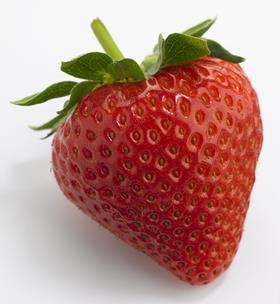
Strawberry growers, crop protection companies and consumers look set to benefit from a major project being undertaken in Kent, UK, to find natural crop protection alternatives to active substances now banned by the European Union.
Scientists at East Malling Research (EMR), near Maidstone, have been tasked with helping the nation's strawberry growers by assessing the ability to replace such chemicals with ones derived from plants including lavender and brassicas.
Backed by funding from the government’s Technology Strategy Board, scientists at the centre say they plan to develop new techniques for protecting strawberries against a major soil borne disease – Verticillium wilt – and find ways to minimise the damage done by this plant pathogen.
The disease, which is caused by a fungus, Verticillium dahliae, represents a serious threat to strawberry production in the UK, where market-leading variety Elsanta is known to be particularly prone to the condition.
Crop failure can be as high as 75 per cent, but even a 10-15 per cent loss due to Verticillium in affected areas can mean growers lose a combined total of approximately £8m-12m (€9.6m-14.4m).
Following the recent banning of methyl bromide by the EU, and with alternative chemical controls continuing to face an uncertain future, UK strawberry growers urgently need to find an effective way to protect their crops, said a spokesperson for EMR.
The alternative approach, biofumigation, is based on the process of using plant-derived volatile chemicals to control soil borne diseases.
Building on previous government-funded research carried out at EMR, the scientists plant to use natural chemicals developed from lavender and brassica crops to suppress the damaging fungus.
This will involve the use of a patented micro-encapsulation technology, developed by another UK-based institution, Eden Research.
Chris Atkinson, head of science at EMR, said: 'Finding practical, alternative ways of tackling diseases like these is important commercially for growers and our ability to increase the amount of food we can grow in this country.'
He added: 'It also offers significant benefits as it will enable growers to replace toxic chemicals with others that are much less damaging to the environment.'
The four-year research project will be led by Berry Gardens Growers Ltd, with detailed research work being carried out by EMR and the Natural Resources Institute.
Other industrial partners are Eden Research PLC, BerryWorld, Sainsbury's, Tozer Seeds Ltd (Plant Solutions), K&S Fumigation Services Ltd and CPM (Retail) Ltd.
Alongside the biofumigation project, scientists at EMR are also developing new varieties of strawberries that are naturally resistant to soil-borne diseases such as the Verticillium fungus, as well as offering improved drought tolerance.



